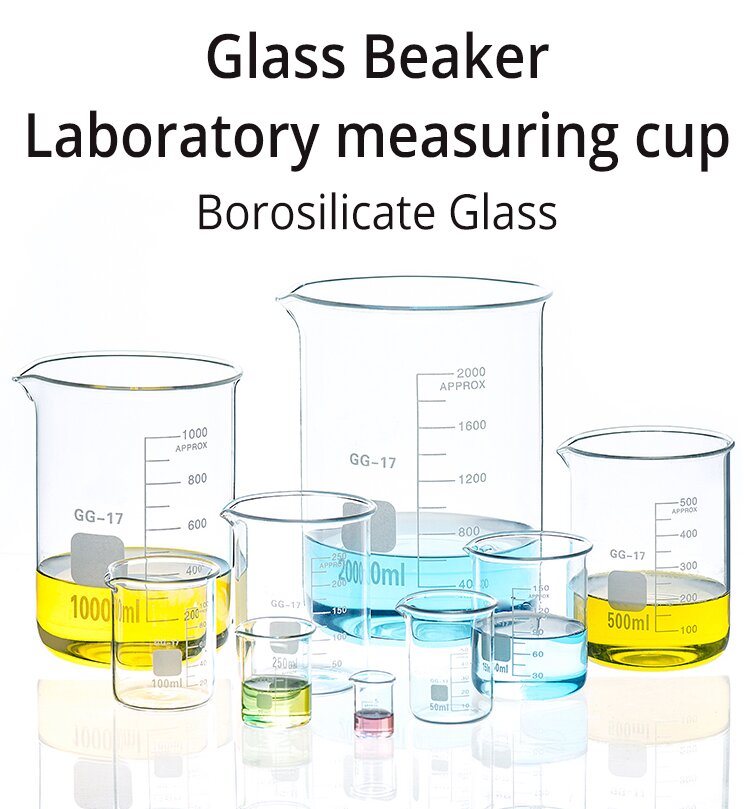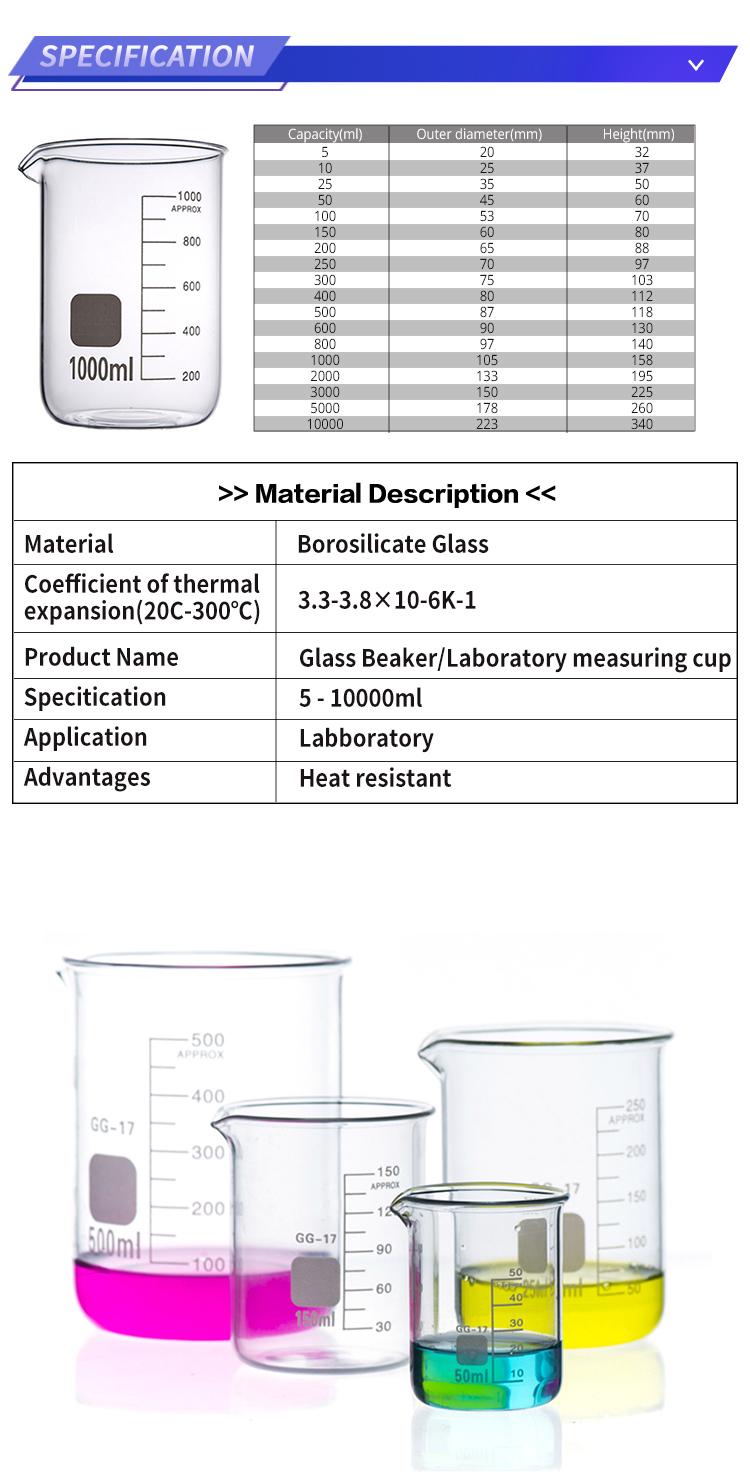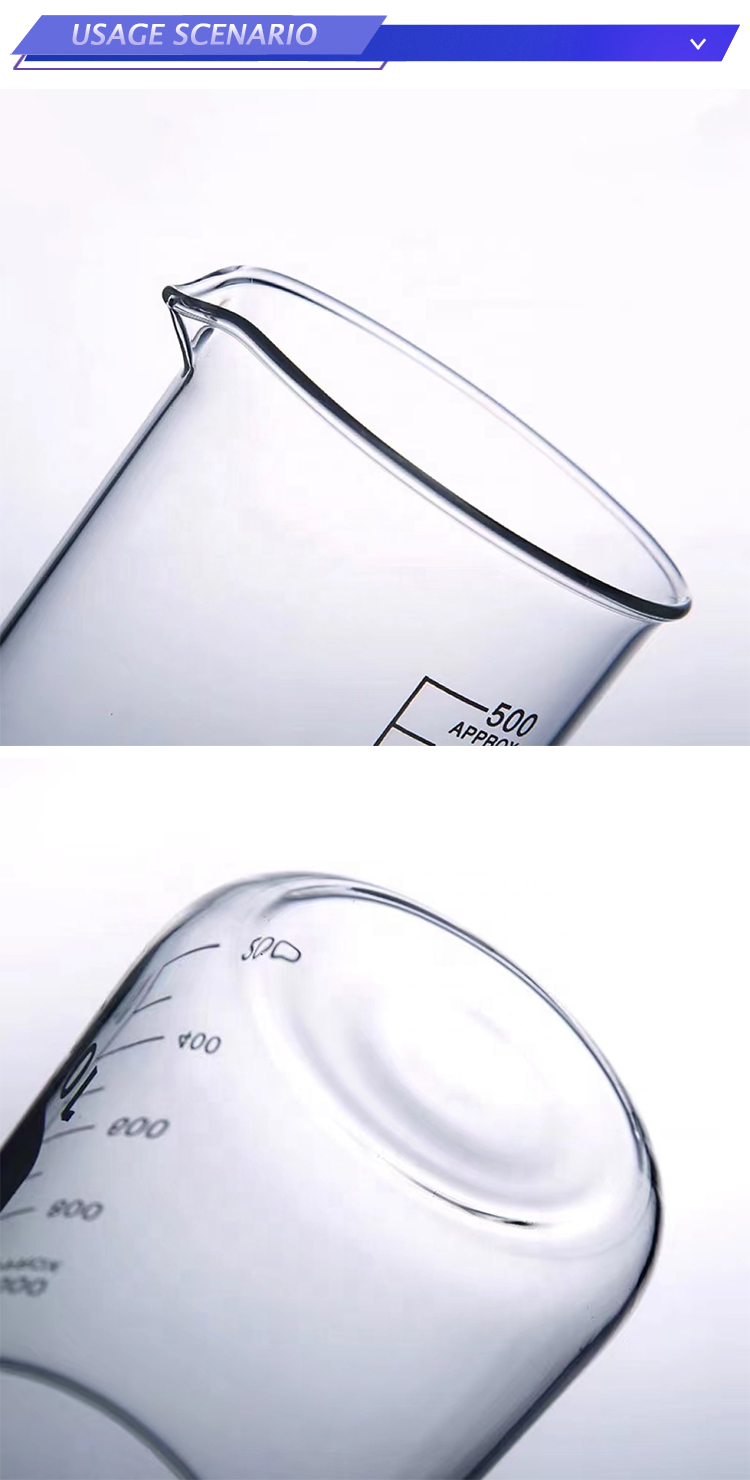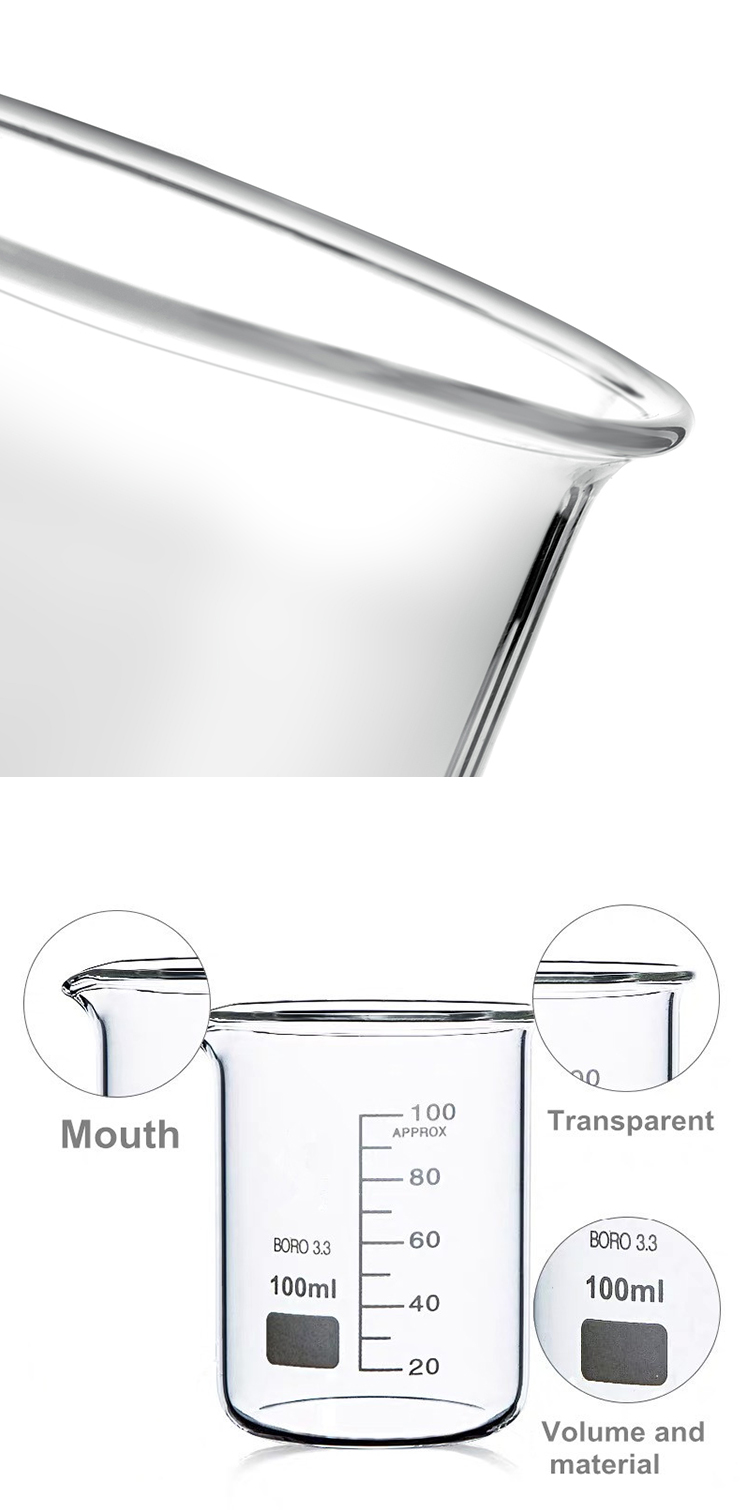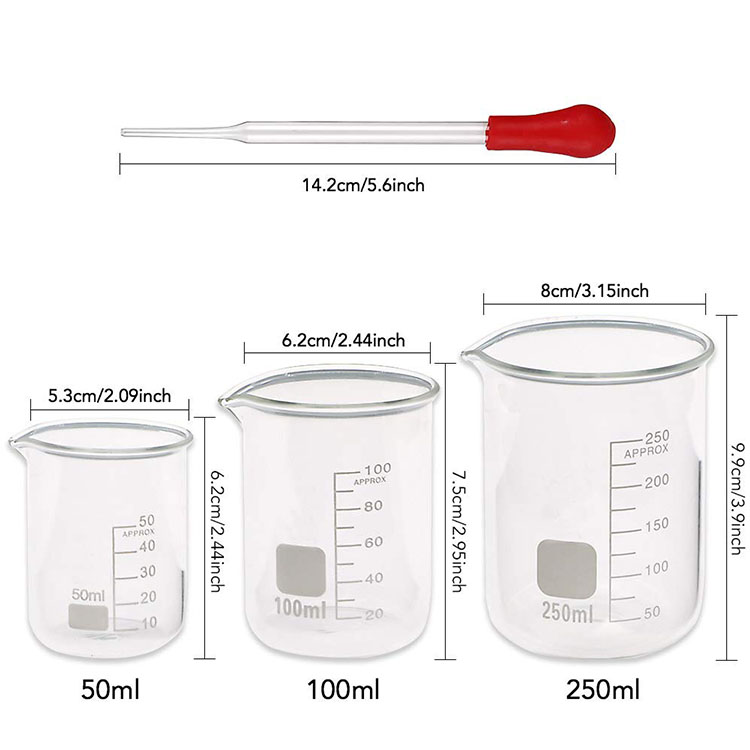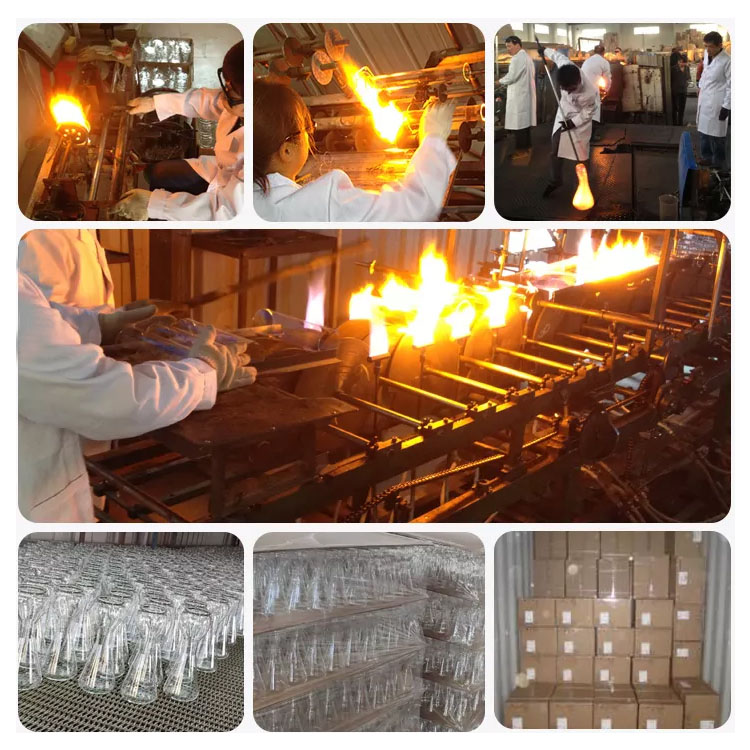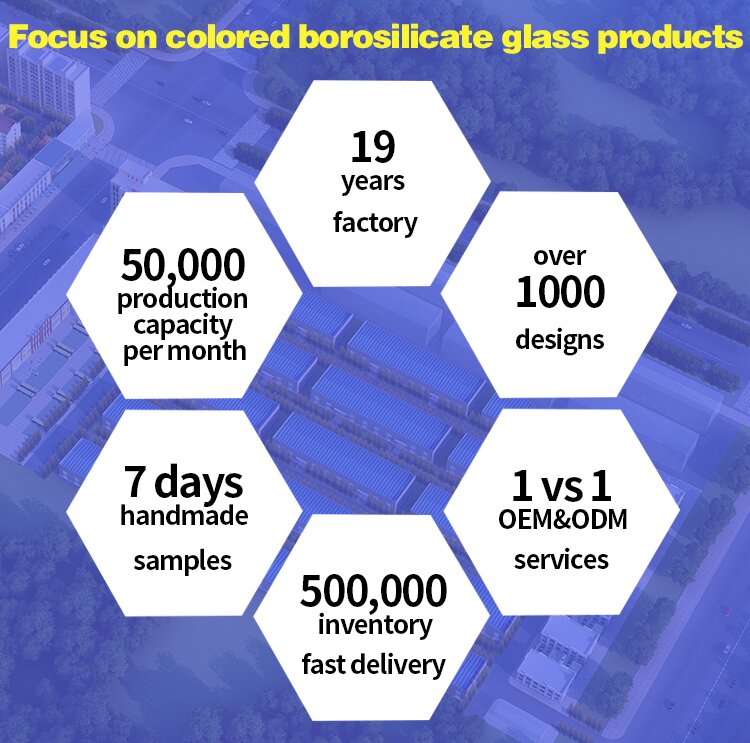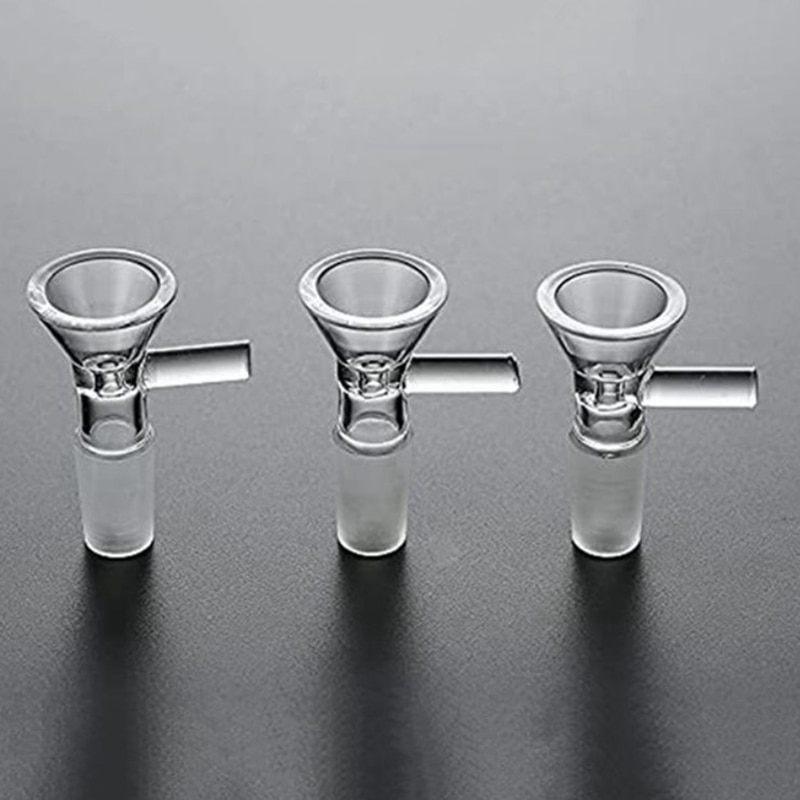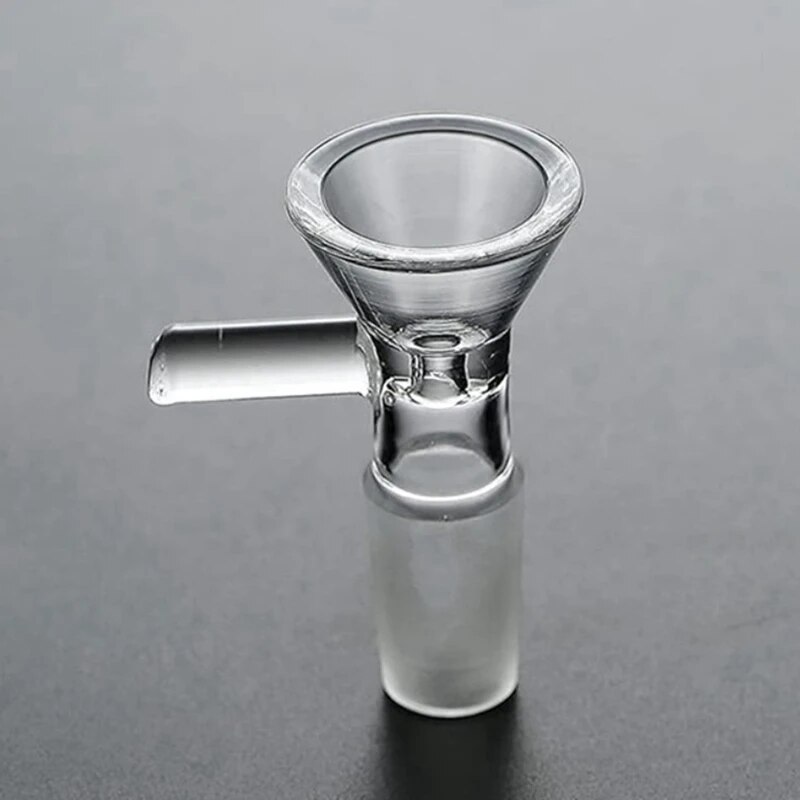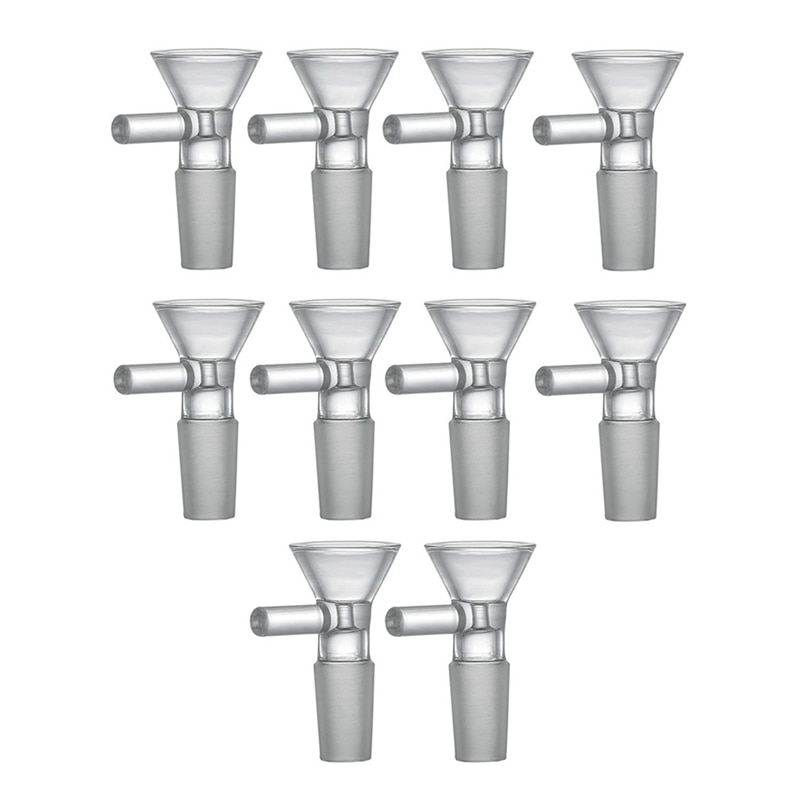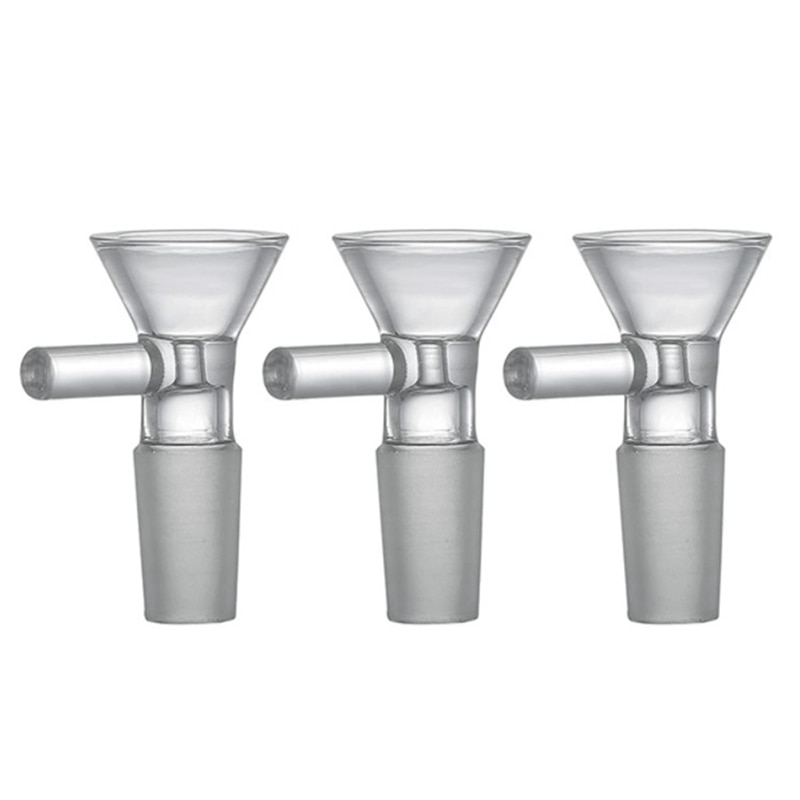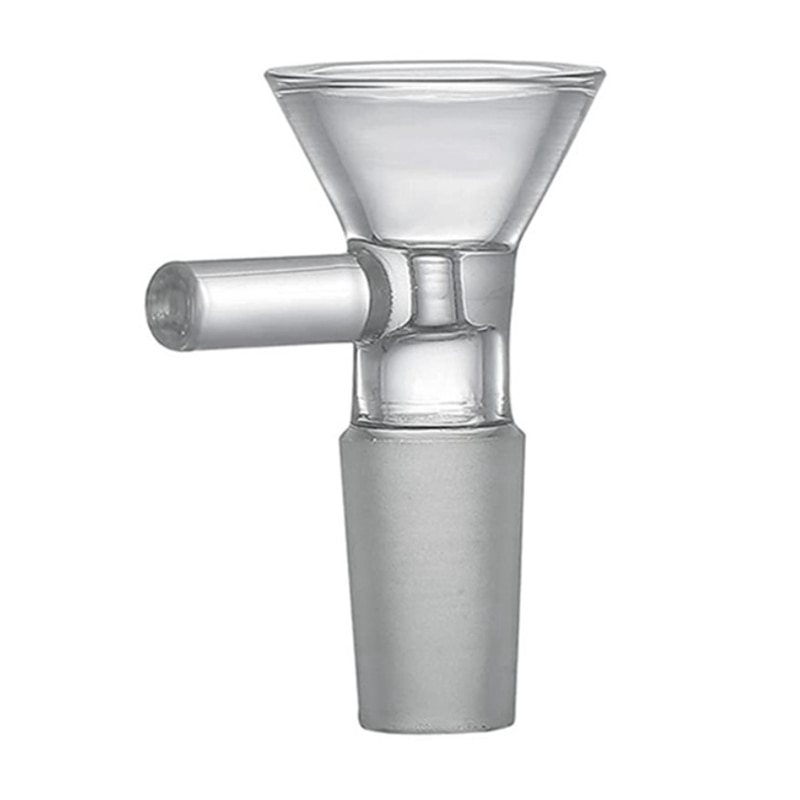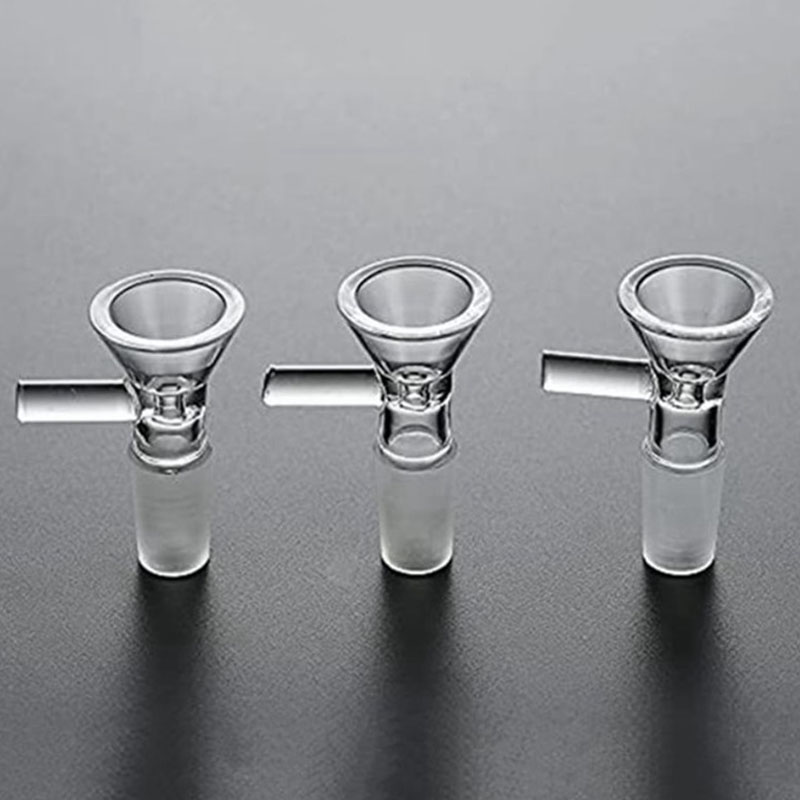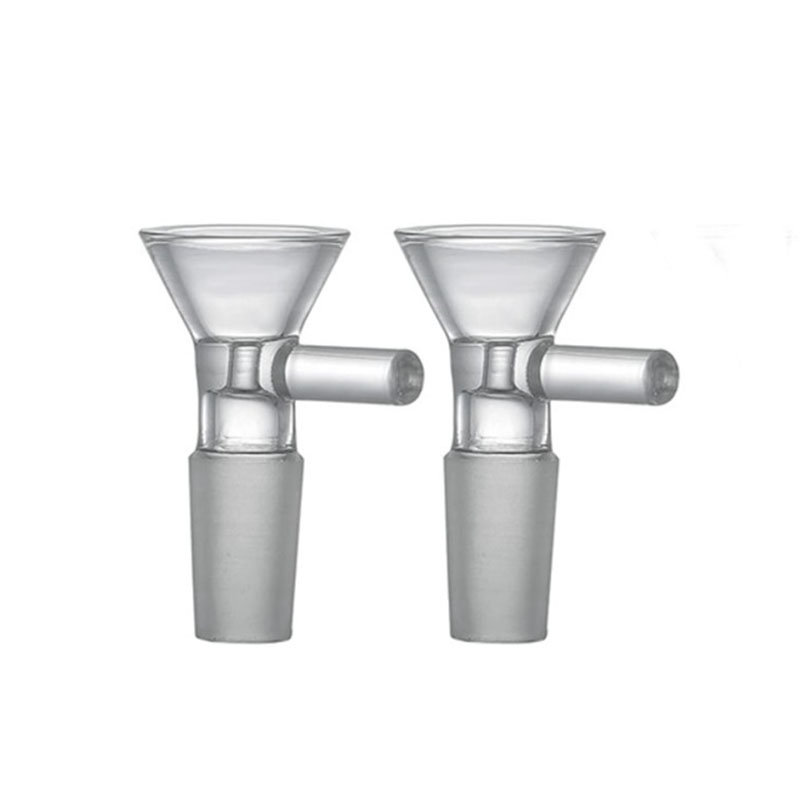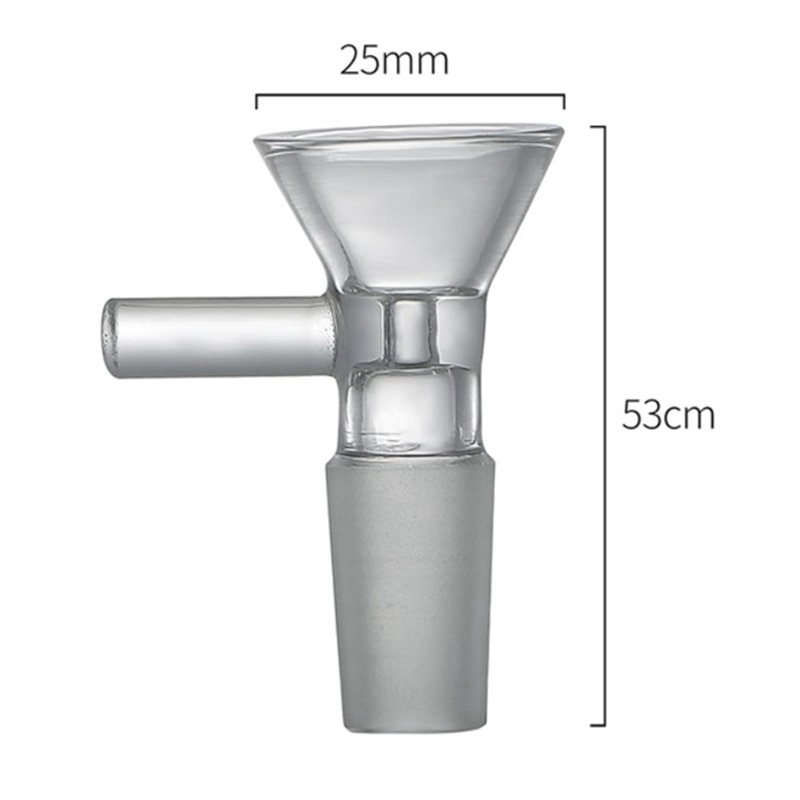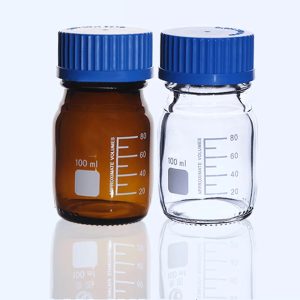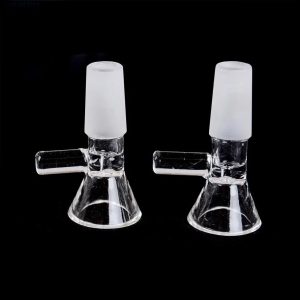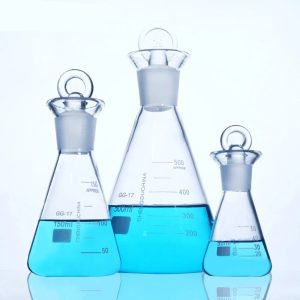Features of borosilicate lab glassware include:
- High Thermal Resistance: Borosilicate glass can withstand a wide range of temperatures, from cryogenic conditions to high heat. It has a low coefficient of thermal expansion, which means it is less likely to crack or shatter when exposed to rapid temperature changes.
- Chemical Inertness: Borosilicate glass is highly resistant to chemical corrosion and can withstand exposure to a wide range of acids, bases, and organic solvents. This makes it suitable for a variety of chemical experiments and reactions.
- Transparency: Borosilicate glass is highly transparent, allowing for easy visual inspection of substances and reactions. This is especially important for experiments that require precise observation and measurement.
- Durable: It is more durable and less prone to breakage than regular soda-lime glass. This durability is crucial for laboratory glassware that may undergo frequent use and handling.
Overall, borosilicate lab glassware is known for its exceptional quality and versatility, making it a popular choice among scientists and researchers in various fields of study.
Borosilicate lab glassware offer several advantages, including:
- Low Expansion Coefficient: The low coefficient of thermal expansion in borosilicate glass reduces stress and minimizes the risk of cracks or breakage when exposed to temperature variations.
- Smooth Surface: The smooth surface of borosilicate glass makes it easy to clean and minimizes the risk of contamination between experiments. This feature is critical for maintaining the integrity of samples and reagents.
- Graduated Markings: Many borosilicate glassware items come with accurate graduated markings, which enable precise volume and capacity measurements. This is essential for quantitative and qualitative laboratory work.
- Versatility: Borosilicate glassware is available in a wide range of shapes and sizes, allowing scientists to choose the most appropriate vessel for their specific experiment. It can be used for various applications, including chemical reactions, titrations, distillations, and more.
Overall, borosilicate lab glassware offers a combination of durability, chemical resistance, and precise measurements, making it an indispensable tool in scientific research, chemical analysis, and various laboratory procedures. Its advantages contribute to the accuracy and safety of experiments while also promoting efficiency and sustainability.
Customizable aspects of borosilicate lab glassware include:
- Size and Volume: Many types of borosilicate glassware, such as beakers, flasks, and graduated cylinders, are available in various sizes and volumes. Customization allows you to choose the dimensions and capacity that best suit your experiment.
- Shape: Some lab glassware items can be customized in terms of their shape. For example, you can order specialized glassware with unique geometries to meet the requirements of a specific experiment or apparatus.
- Graduated Markings: Graduations on the glassware can be customized to meet specific measurement needs. You can request custom volume markings or special calibration for precise measurements.
- Engraving or Labeling: You can have your lab glassware engraved or labeled with custom markings, codes, or logos for easy identification and tracking within your laboratory.
- Special Coatings or Treatments: Some borosilicate glassware can be customized with special coatings or treatments to enhance their properties. For example, anti-static or anti-reflective coatings can be applied to specific glassware items.
- Additional Features: Depending on the manufacturer, you may be able to request additional features, such as the inclusion of stopcocks, ground glass joints, or other specialized attachments to suit your experimental setup.
It’s important to note that the extent of customization options may vary from one manufacturer to another, and there may be minimum order quantities or additional costs associated with customizations. Therefore, when seeking custom borosilicate glassware, it’s advisable to consult with the manufacturer or supplier to discuss your specific requirements and the available customization options.
There are several packaging solutions available for borosilicate lab glassware, including:
- Foam Inserts: Foam inserts are custom-cut foam pieces that are designed to snugly fit around specific glassware items. They provide excellent cushioning and protection against impacts and vibrations during transport. The foam can be tailored to the shape and size of the glassware.
- Cardboard or Plastic Boxes: Many glassware items come in individual cardboard or plastic boxes that are designed to hold the glassware securely. These boxes are typically labeled to indicate the type and size of the glassware.
- Custom Cases: Some specialized or sensitive glassware may come in custom-designed cases or boxes made of durable materials like plastic or metal. These cases often have latches or locking mechanisms to ensure the glassware remains securely stored.
- Bubble Wrap: Borosilicate glassware can be wrapped in bubble wrap, which provides protection against minor impacts and scratches. This is often used in combination with other packaging solutions.
- Styrofoam Packaging: Styrofoam inserts or packaging materials are used to cushion the glassware within boxes or crates. They offer excellent shock absorption and are often used for fragile glassware.
- Wooden Crates: For large or heavy glassware items, wooden crates can be used to provide maximum protection. These crates are sturdy and can be custom-built to accommodate the specific glassware dimensions.
The choice of packaging solution will depend on the type of glassware, its size, and the specific needs of the laboratory or application. Proper packaging is essential to ensure that the glassware arrives in pristine condition, ready for use in experiments or analyses.
